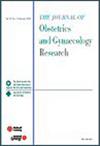The relationship between loneliness perception and breastfeeding self-efficacy and breastfeeding behaviors in mothers
Abstract
Background
Breast milk and breastfeeding affect the health of the child, the mother, and indirectly the public. Therefore, it is important to determine the breastfeeding self-efficacy of mothers, breastfeeding behaviors, and the factors affecting them, and to eliminate the factors that negatively affect breastfeeding.
Aim
The study was conducted to examine the relationship between the perception of loneliness in mothers and breastfeeding self-efficacy and breastfeeding behaviors.
Methods
This descriptive and correlational study was conducted in Turkey between March and November 2024 with 382 mothers (n = 382). The data were collected using the Descriptive Information Form, Breastfeeding Self-Efficacy Scale (BSES), and Social and Emotional Loneliness Scale (SELSA-S).
Results
The mean total score of the mothers in the study was 43.72 ± 11.13 and the mean total score of SELSA-S was 59.67 ± 13.25. In the study, it was found that those who were university graduates, were employed, received education about breastfeeding, were currently breastfeeding, as well as those who exclusively breastfed for the first 6 months, received spousal support while breastfeeding, had statistically significantly higher mean total scores on the BSES and lower mean total scores on the SELSA-S than the others. Additionally, receiving general social support and specifically from their spouses also contributed to these higher scores. In addition, a high-level negative linear relationship was found between the BSES and SELSA-S total and sub-dimensions (p < 0.001).
Conclusions
It was concluded that the perception of social and emotional loneliness negatively affected breastfeeding self-efficacy and some breastfeeding behaviors in mothers with infants aged 0–24 months.

 求助内容:
求助内容: 应助结果提醒方式:
应助结果提醒方式:


